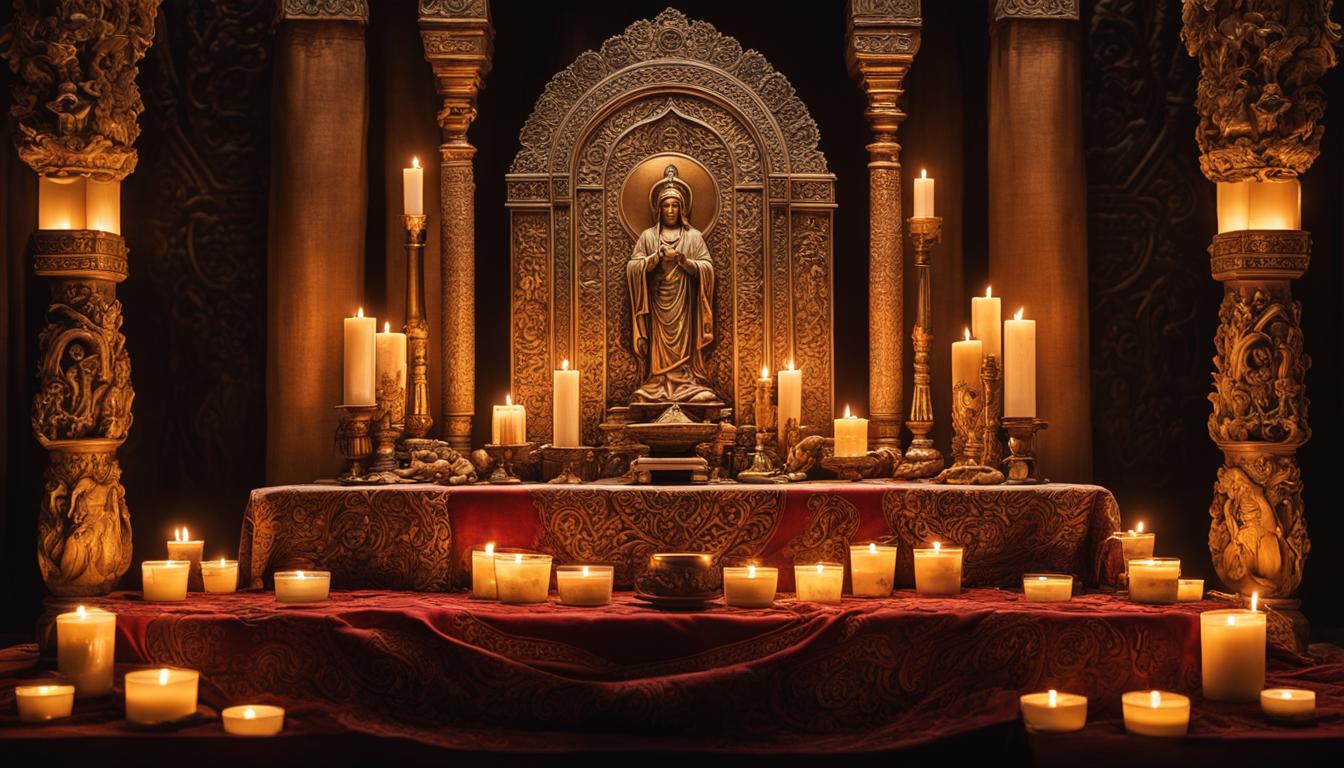Understanding the distinction between “altar” and “alter” is crucial for clear communication, as these words are homophones—they sound alike but have different meanings and spellings. This article explores the definitions, uses, and examples of “altar” and “alter” to help clarify their distinct contexts and applications.
| Aspect | Altar | Alter |
|---|---|---|
| Meaning | A table or flat-topped block used as the focus for a religious ritual, especially for making sacrifices or offerings to a deity. | To change something, typically in a small but significant way. |
| Usage | Refers specifically to a physical object used in religious or spiritual ceremonies. | Refers to the act of making changes to various things, such as clothes, plans, or opinions. |
| Part of Speech | Noun | Verb |
| Example Sentence | The priest approached the altar to prepare the communion. | She decided to alter her wedding dress to fit more comfortably. |

Difference Between “Altar” and “Alter”
Definition of Altar
An "altar" is a noun that describes a sacred table or platform used in religious rituals and ceremonies. Found in places of worship like churches, temples, and shrines, altars are central to many spiritual practices, serving as the site for sacrifices, offerings, or other religious rites.
Definition of Alter
"Alter," on the other hand, is a verb meaning to change or modify something. This can apply to a wide range of contexts, from altering clothing to fit better, to altering plans due to unforeseen circumstances, or even altering one's opinion in light of new information. The essence of altering is making a change, whether minor or significant.
Usage and Context
- Altar: Used in religious or spiritual contexts to refer to a physical object.
- Alter: Used in various contexts where change or modification is involved.
Use of Altar in Sentences
- The couple exchanged vows in front of the altar, surrounded by their loved ones.
- Refers to a specific location within a place of worship.
- Candles and flowers decorated the altar for the evening service.
- Highlights the use of an altar as part of religious decorum and ritual.
Use of Alter in Sentences
- The architect decided to alter the design to incorporate more natural light.
- Indicates a change in design plans.
- Unexpected weather conditions forced them to alter their travel itinerary.
- Describes a situation where plans are changed.
- Growing awareness about health has led many to alter their eating habits.
- Refers to making changes in lifestyle choices.
Conclusion
“Altar” and “alter” serve very different purposes in language, with “altar” denoting a sacred religious object and “alter” indicating the act of change. Recognizing the distinction between these homophones is essential for their correct usage in writing and speech, ensuring clarity and precision in communication.
Commonly Asked Questions
Q: Can “alter” ever be used in a religious context? A: While “alter” itself might not directly refer to religious practices, it can be used in religious contexts to describe changes to rituals, traditions, or even physical changes to places of worship. The key is that “alter” always indicates a form of change.
Q: Is it common to confuse “altar” and “alter” in writing? A: Yes, because they are homophones, it’s common for people to confuse “altar” and “alter” when writing. Paying attention to the context and remembering their distinct meanings can help avoid this mistake.
Q: How can I remember the difference between “altar” and “alter”? A: A helpful mnemonic is to associate the “a” in “altar” with “altar” being an actual place, and the “e” in “alter” with “edit,” which means to change.

FAQ
What is the difference between ‘altar’ and ‘alter’?
‘Altar’ is a noun that refers to a table or raised structure used in religious worship or ceremonies. On the other hand, ‘alter’ is a verb that means to modify or change something.
What does ‘altar’ mean?
An ‘altar’ is a table or raised platform of religious significance that serves as the focal point of worship and ceremonies in various religious traditions. It is adorned with decorations and symbols that hold meaning in religious rituals.
What is the purpose of an altar?
The purpose of an ‘altar’ is to provide a sacred space for religious rituals and worship. It serves as a symbolic representation of the divine and often holds religious artifacts and offerings during ceremonies.
How can an altar be designed and decorated?
The design and decoration of an ‘altar’ can vary depending on the specific religious tradition and the purpose of the ceremony. It may include religious icons, candles, flowers, incense, and other symbolic elements that hold significance within the particular faith.
What is the significance of an altar in religious rituals?
‘Altars’ hold great religious significance as they are considered sacred spaces. They serve as a focal point for worship, meditation, and offerings. ‘Altars’ represent a connection between the divine and the worshipper, facilitating a sense of reverence and spiritual connection.
What does ‘alter’ mean?
‘Alter’ is a verb that means to modify or change something. It can refer to making small but significant modifications without losing the object’s original identity.
Can you provide examples of using ‘alter’?
Certainly! Examples of using ‘alter’ include altering a garment to fit properly, altering a recipe to suit personal preferences, or altering a document to meet specific requirements.
What does ‘alter ego’ mean?
‘Alter ego’ is a term used to describe someone’s second identity or another side of their personality. It often refers to a person’s hidden or alternative self.
What is meant by ‘mind-altering’?
‘Mind-altering’ refers to substances or experiences that cause changes in mood or thought processes. It generally describes the effects of drugs, meditation, or other practices that alter one’s perception or consciousness.
How can I use ‘altar’ and ‘alter’ correctly?
To use ‘altar’ and ‘alter’ correctly, it is crucial to understand their distinct meanings and parts of speech. Remember that ‘altar’ is always a noun referring to a religious table or structure, while ‘alter’ is always a verb meaning to modify or change something.

